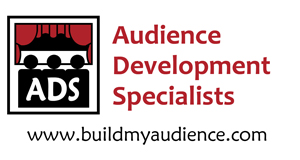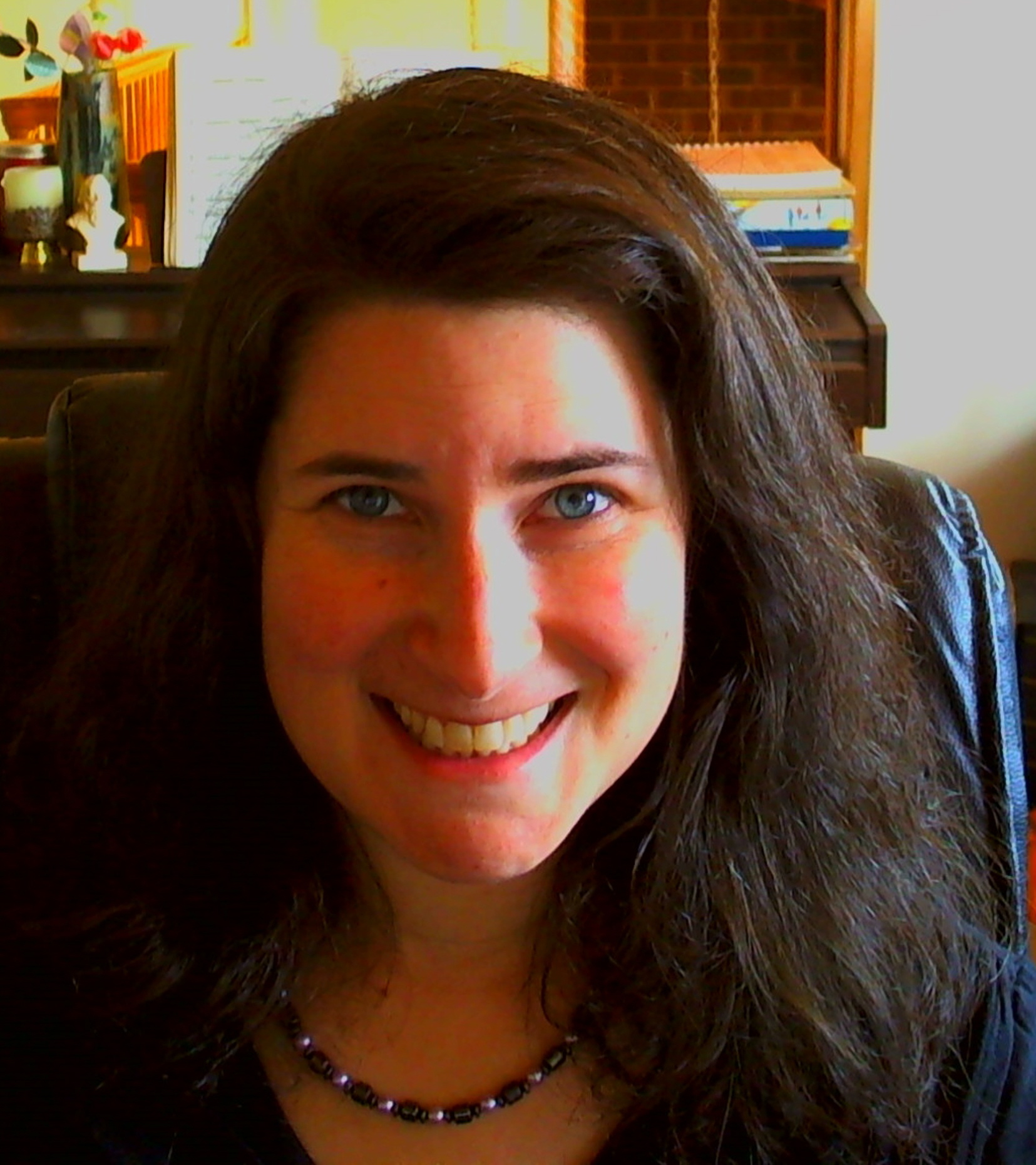As I mentioned on Twitter, I am surprised that the following article did not spur a heap full of discussion. From the very get go, I was intrigued, a little alarmed at first, and very interested in this new audience development business model.
Building audiences at the Skokie Theatre
By BRUCE INGRAM Contributor May 1, 2012 9:04PM
Allow me to quote and ponder:
Not having an artistic agenda, it seems, can be very good business.
Holy arts management danger, Batman! Can an arts company really function in this matter? Read on…
“Our only agenda is to create shows people want to see,” said Skokie native Dan Abbate, founder and co-owner of Gorilla Tango (along with his marketing-maven wife Kelly Williams). “We find out what people want to see by taking good, educated guesses, then seeing if they work. If they don’t, our attitude is: Forget it; that was a bad idea; what’s next?”
Wow, I can see this ruffling some feathers, but I have to admit, this could be an audience development gold mine if played out right. Let’s see what this model is all about.
Basically, you open your doors to other producers, who bring their clever ideas to the venue and agree to pay a small percentage of initial ticket sales to cover a share of production expenses. And you don’t care, particularly, if they’re producing cabaret, or comedy, or a concert of operatic arias. If the show’s a flop, you commiserate and say better luck next time. If it’s a success, you book it for a long run and split the profits 50/50.
As a bonus, the communities served enjoy an almost wildly eclectic schedule of attractions that have only one thing in common: some hope of appealing to some segment of the show-going audience.
So instead of doing a complete full run of a show and hoping that it will be successful, this theatre company actually has shorter runs, and if successful, will book a longer run. If not successful, it’s out. The audiences are in charge of deciding what they enjoy seeing in this case.
“I am, first and foremost, business- and profit-oriented,” said Abbate…”If I have to produce 10 shows to find one that’s a big hit, I should probably be producing 10 shows constantly and then I’ll be getting hits constantly.”
For this model, they are not afraid of flops, it is all a part of their trial and error process to find the shows that will be successful. Does this model work?
Abbate’s model (facilitated by his own accounting and scheduling computer software, which keeps traffic jams at a minimum) works well enough that not not-for-profit Gorilla Tango owns its Bucktown and Skokie theaters — and attracted more than 15,000 audience members during its first six months of operations in Chicago.
They are not relying on donations, own their own theaters, and they attracted more than 15,000 audience members in 6 months? In terms of this business model, it seems to be making sense and cents. I also like the fact that they are probably more open to new plays than the typical company since everything is viewed as a potential hit. The variety could also be a huge benefit to their audiences.
“We need to find producers who have a good idea of what’s likely to appeal to audiences in this area,” he said. “When you come right down to it, we’re developing products. And this is like any other business: You have to find a product that people want.”
However, does being so audience-centric and “product” oriented good for theatre in general? I would be interested in knowing if the quality factor is considered when choosing a production and if not, does quality play a part in which shows flops and which shows succeed? With choices being less artistically driven, are productions merely “audience pleasers” or are these productions still artistically challenging? Does the marketing of the individual production make much of a difference and/or are some of these productions using audience development programs? This model definitely seems to bring up important questions, and I might have to contact them to get some answers.
In the meantime, I would love to hear your thoughts too. Please comment. Have a wonderful weekend!
Cheers to happy and loyal audiences,
Shoshana
Shoshana Fanizza
Audience Development Specialists
https://www.buildmyaudience.com
“Never treat your audience as customers, always as partners.”
~James Stewart
Although we are not a non-profit, if you would like to support ADS to continue our work, you can donate here.
New eBook! The How of Audience Development for the Arts: Learn the Basics, Create Your Plan






Gorilla Tango is a for-profit business run by entrepreneurial, scrappy people (I’ve met Dan and talked to him about his business and his approach). This is how for-profit businesses work. They have to appeal to their customers (which in this case comprise an audience) or do something else.
What is not mentioned here is that Gorilla Tango will cycle through multiple performances (of different productions) each day, so shows generally need to be short, and you have to reset the stage to blank wall very quickly after each performance. This makes it unsuitable for certain types of theatrical production, obviously, and well-suited to the minimal or inexpensive, or at least, well-suited to something without much in the way set or props. Their most consistent and long-running product of which I’m aware is a series of burlesque reviews designed to appeal to nerds and geeks.
I’m glad that Gorilla Tango exists and is doing what it is doing. It’s like a revival of the vaudeville incentives and spirit. It’s very different than what most nonprofit theater does, too, which is good. The last thing we need is more artists repeating each other ad nausea. And I’m not an art for art’s sake kind of guy, anyway. But the Gorilla Tango model is not one that you should employ if you wish to challenge your audience in any way.
Thank you, Aaron. Many of your thoughts echo my own. I also do not feel this model would be for everyone, but I do admire the spirit of allowing the audience to play a big role in their process.
The deal offered to producers, 50% after $250, is also unsuitable for producing anything of a professional caliber. It does not account for any production or promotional costs, let alone artistics staff. Its a 150 seat house. Unless the producer charges $30 per ticket and sells out, its unlikely they’re make their investment back.
That is, unless you’re serving up low value productions for high prices or vaudeville style quick shows. But Abatte is in for a wakeup call. North Shore audiences in Skokie are sophisticated, high end arts consumers. They are not interested in the in-your-face fare GT presents in Bucktown and will likely pass on his model.
There is nothing being done to develop audiences here. That’s the real story. Its highly unlikely that the hipsters in Wicker Park heading to GT will come up to Skokie to see the same fare, especially without a bar and even with the new L stop.
Abatte talks about business, but I don’t see a plan here, just an opportunist with extra cash. Running a successful performing arts venue takes more than scrappy attitude, brash talk and some crazy scheme. The Skokie Theatre deserved better. The Village of Skokie deserved better. The people of Skokie deserved better.
Thank you for your comment, Alan. It is good to get the other perspective. If producers are not making their fair share, then I agree that this plan needs to be revisited. I feel the arts will only be successful if everyone has the potential of being successful. My one question is, are some of these shows selling out? This would mean that even if you feel the audiences of Skokie deserve better (which I know they do – I used to perform in that area back in the day), they still might enjoy some of these productions.
Thanks again, Alan, for stopping by!
After Alan’s comment, I feel it necessary to defend Dan Abatte and Gorilla Tango.
Dan is no idiot, and he certainly isn’t expecting his current Chicago audience to traipse up to Skokie. I agree that it’s going to be too hard for a company to make a profit producing at GT unless they’re producing on the cheap. But outside of vaudeville and burlesque style stuff, that is probably not most of GT’s producing partners’ greatest concern.
Alan seems to think the traditional Skokie audiences are GT’s key customers. I don’t think they are. Abatte isn’t there to steal market share from Northlight by producing Equity theater. Instead, he’s there to give amateur producers a shot. Rent at other small theater venues is getting higher and higher. Chicago Storefronts are finding it just isn’t as easy as it used to be to afford rent and materials, and even when actors and staff work for nothing, they still have to spend more time than they ever imagined raising donations. At Gorilla Tango, you’ll have a hard time making money, but you could produce a show on your credit card (or perhaps with a small gift from mom and dad). If you lose all your money, at least you didn’t pay $1500-2500 per week in rent for that 150 seat house. Abatte is, in a profit-oriented way, giving lots more people a chance. And like a venture capitalist, he pays for facilitating the failures by taking a large share if something hits.
Thanks again, Aaron.